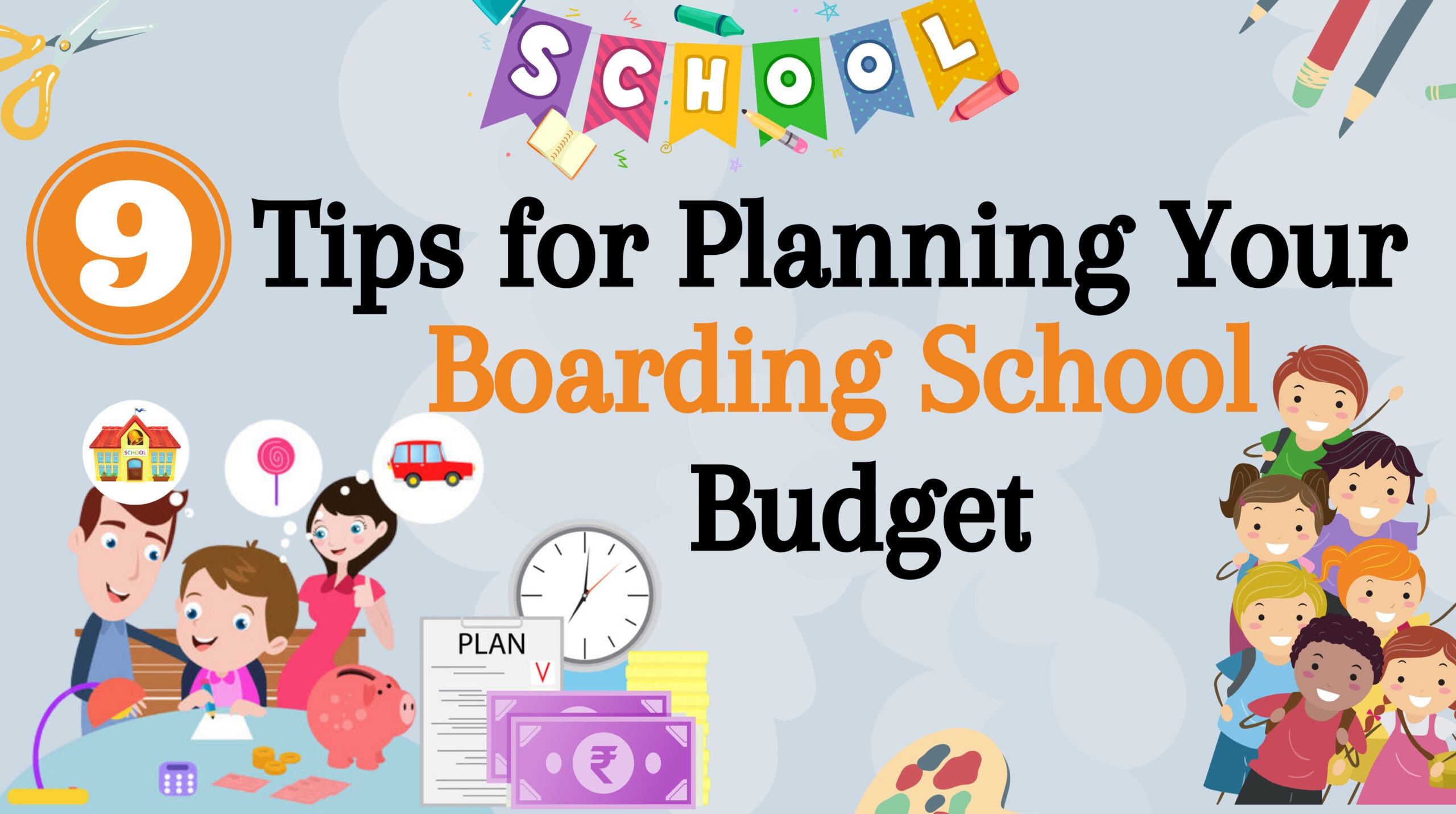Investing in your child’s education is a significant step toward securing a bright and promising future for them. However, this commitment is not only important but also comes with significant financial demands that require careful budgeting and planning. Given the many duties that come with being a parent, setting up and overseeing a budget for your child’s boarding school education may initially seem like a daunting task.
Don’t fear, though; with a clear understanding and a well-organized plan, the school budgeting process can transform from a difficult undertaking into a worthwhile activity with long-term advantages that will eventually become apparent sooner or later. Remember, a strategic approach to financial planning can make all the difference. In addition to being able to better manage your educational expenditure, you’ll also be able to guarantee that your child gets the best education and growth potential. In this blog, we will help you with planning your boarding school budget – 9 tips for planning finance.
Table of Contents
1.Research Boarding School Costs
Before starting on your financial planning journey, it’s essential to research the costs associated with boarding schools. Different schools have varying tuition fees, and they often include room, board, and other expenses. You can start by gathering information about the schools you’re considering and making a list of their costs. This will give you a clear idea of how much you need to budget for. Here’s how:
2.Create a Detailed Budget
Once you have an idea of the costs, it’s time to create a detailed budget. List all the expenses associated with boarding school, including tuition, room and board, textbooks, uniforms, extracurricular activities, and transportation (in case you’re opting for weekly boarder). Be thorough in your estimation, and don’t forget to account for unexpected expenses. Your budget will serve as your roadmap for the entire process.
3.Start Early: Invest for a Bright Future
Investing today can yield better returns in the future. The sooner you start planning for your child’s boarding school education, the more financially prepared you’ll be. Whether your child is in preschool or approaching their teenage years, setting up a dedicated savings or investment account is a wise move. Here are some ways to get started:
4.Set Realistic Expectations
While you want the best for your child, it’s essential to set realistic expectations for your budget. Be honest about what you can afford and how much you’re willing to stretch your finances. Boarding school is an investment in your child’s future, but it’s crucial to maintain a balanced financial outlook.
5.Review and Adjust Regularly
Once your budget is in place, it’s important to regularly review and adjust it as needed. The future is always unstable, and things in life may change over time. Thus, it is always wiser to ensure that your budget is flexible and adaptable to these changes, so you can stay on track.
6.Cut Unnecessary Expenses
To make room in your budget for boarding school expenses, consider cutting unnecessary expenses. Evaluate your monthly spending habits and see where you can make adjustments. This might involve eating out less, cancelling unused subscriptions, delaying or cancelling your travel plans, or finding more cost-effective alternatives.
7.Plan for Emergencies
In addition to your regular budget, it is important to set aside an emergency fund to cover unexpected expenses without disrupting your child’s education. This fund provides peace of mind during challenging times.
8.Explore Financial Aid and Scholarships
Along with budgeting and saving, it’s essential to explore various financial options and resources available. Many boarding schools, institutions, or government schemes offer financial aid and scholarships to help make education more accessible. Here’s how you can start:
9.Seek Professional Guidance
If you find budgeting and financial planning overwhelming, don’t hesitate to seek professional guidance. A financial advisor can help you navigate the complexities of managing your finances and make informed decisions. Alternatively, you can contact us at [email protected] we have helped many parents in getting their dream boarding school, that too in their budget and you can be one of those.
Take Away
Planning your boarding school budget may be a challenging task, but with careful research, a detailed budget, and a realistic outlook, you can make it a manageable process. Remember that investing in your child’s education is a valuable endeavor. By following these tips and staying committed to your budget, you can provide your child with a quality boarding school experience while maintaining your financial stability.
Still, have some doubts? No worries we’re here to support you at Boarding Schools of India, we provide expert research and hands-on advice to help you choose the best school for your child.




